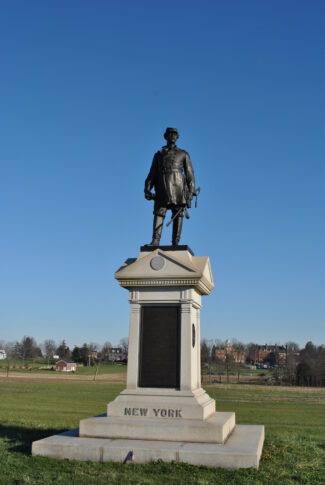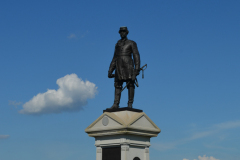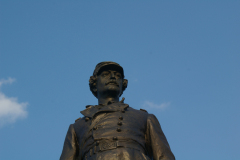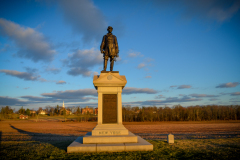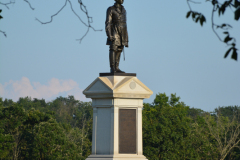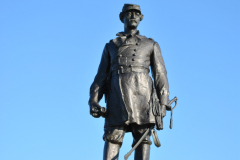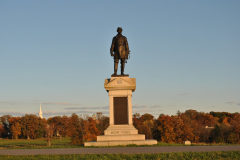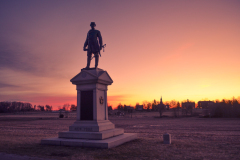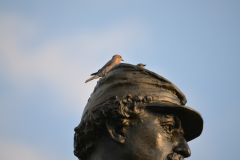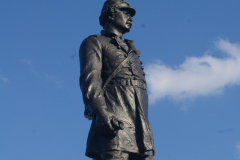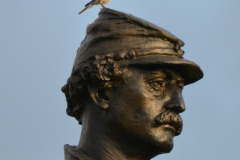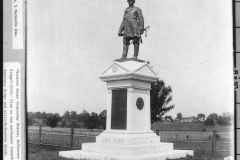Dedicated: Sept. 25, 1917.
Location: Located on the east side of Reynolds Avenue near intersection with Meredith Avenue. Memorial is placed in the approximate center center of his Division line on July 1, 1863, prior to the retreat towards Seminary Ridge.
Description: A standing portrait of General Doubleday holding his sword in his proper left hand and a pair of binoculars in his proper right hand. The sculpture rests atop a square base adorned with a bronze inscription plaque and a circular bronze plaque depicting the New York state seal. The monument is placed in the center of Doubleday’s division line on July 1, 1863. Monument was erected by the state of New York (he was a native of Ballston Spa). The monument cost $7,357.00. Overall height is 20 feet.
National Park Service List of Classified Monuments Number: MN44.
Sculptor: Rhind, John Massey, 1860-1936, sculptor.
About Maj. Gen. Abner Doubleday
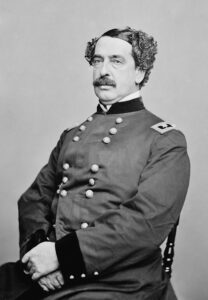 Nicknamed Forty-Eight Hours (which, depending on if you liked or disliked Doubleday was a compliment or an insult), Abner Doubleday was born on June 26, 1819 in Ballston Spa, New York. He graduated from West Point in 1842 and was posted to the artillery. At the beginning of the Civil War, he was a captain and second in command at Fort Sumter.
Nicknamed Forty-Eight Hours (which, depending on if you liked or disliked Doubleday was a compliment or an insult), Abner Doubleday was born on June 26, 1819 in Ballston Spa, New York. He graduated from West Point in 1842 and was posted to the artillery. At the beginning of the Civil War, he was a captain and second in command at Fort Sumter.
He saw his first combat action during the Second Bull Run Campaign, rising to command a division in the Antietam Campaign and at South Mountain. He was wounded at Antietam and his division served in a reserve role at Fredericksburg.
Upon the death of Reynolds, Doubleday took command of the I Corps. On July 2, 1863, Meade replaced Doubleday with Major General John Newton, a more junior officer from the VI Corps, after General Howard reported the I corps broke first. Doubleday rode with Lincoln on the train to Gettysburg for the Gettysburg Address but never held a significant combat command. He later was a lawyer in New York and died on January 26, 1893. He was buried at Arlington National Cemetery.
In 1908, 15 years after his death, the Mills Commission declared that Doubleday had invented the game of baseball, although this has thoroughly been debunked, and Doubleday himself never made such a claim.
